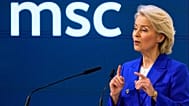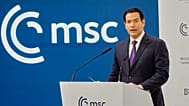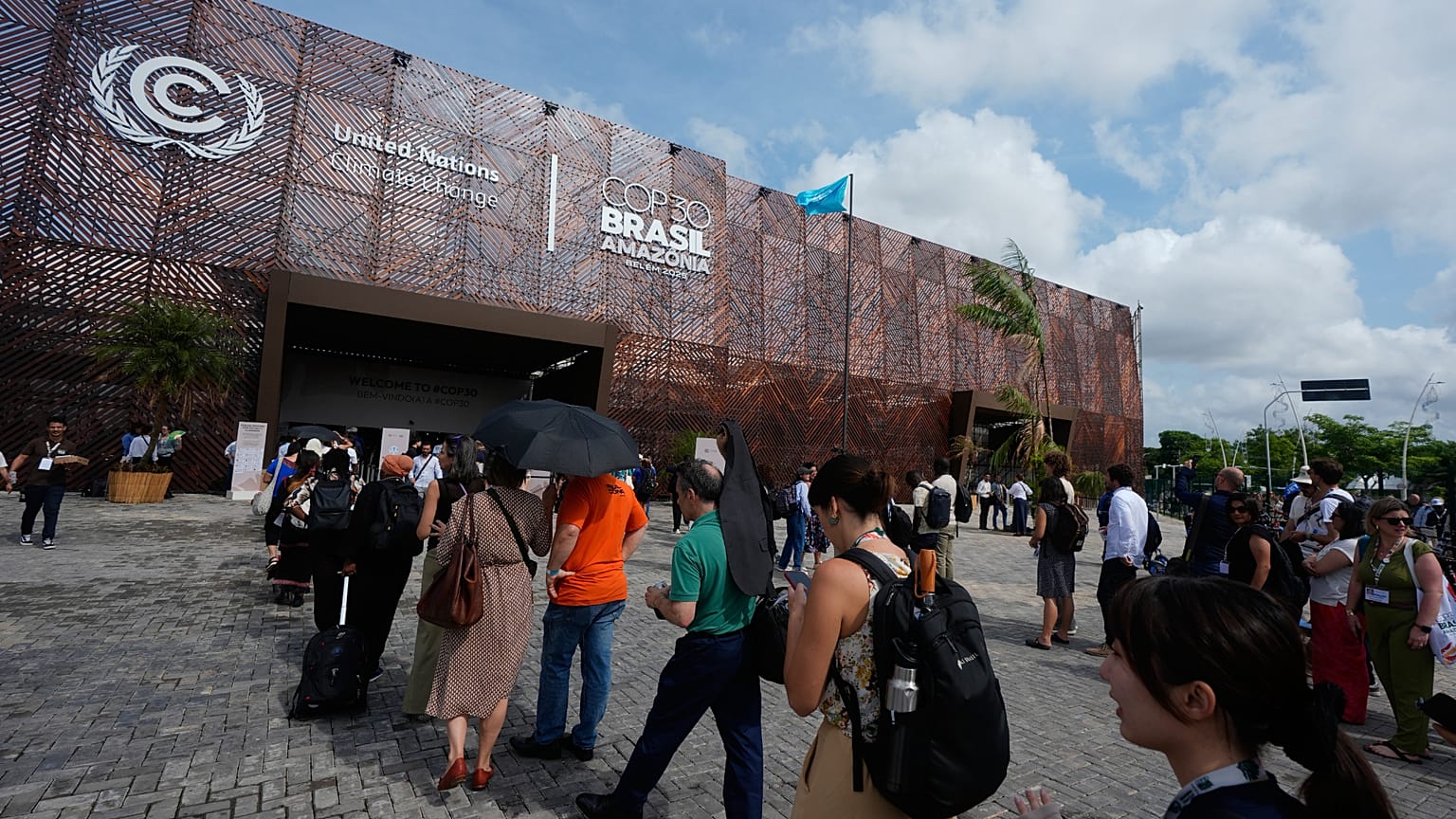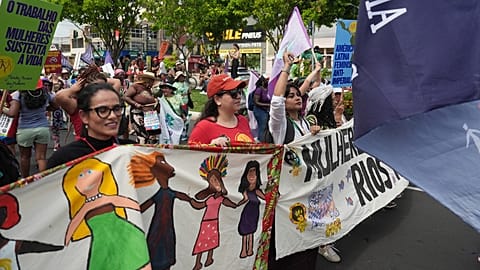Analysis finds 1,600 fossil fuel representatives at UN climate summit in Brazil, outnumbering almost every country delegation.
One in every 25 COP30 attendees is a fossil fuel lobbyist, according to a new analysis by the Kick Big Polluters Out (KBPO) coalition.
 ADVERTISEMENT
ADVERTISEMENT
 ADVERTISEMENT
ADVERTISEMENT
It found that more than 1600 fossil fuel lobbyists have been granted access to the UN climate summit in Belém, significantly outnumbering almost every country delegation at the talks. Only the host country, Brazil, has sent more people, with a delegation of 3805.
KPBO says this is a 12 per cent increase from last year’s climate talks in Baku, Azerbaijan and is the largest concentration of fossil fuel lobbyists at COP since the coalition started analysing attendees in 2021.
The overall number of fossil fuel representatives at COP30 is less than it was at COP29 in Baku last year, but the proportion is higher as there are fewer people in total attending the talks in Belém.
What counts as a fossil fuel lobbyist?
For its analysis, the KPBO coalition uses the provisional list of COP30 participants published by the UNFCCC on 10 November. It uses only the information provided on this list to determine if a delegate has ties that would qualify them as a fossil fuel lobbyist.
The analysis defines a fossil fuel lobbyist as any delegate who represents an organisation or delegation that aims to influence climate policy in favour of the fossil fuel industry or specific fossil fuel companies.
This includes financial representatives from institutions that have provided major funding to fossil fuel companies since the Paris Agreement was signed.
Fossil fuel lobbyists outnumber delegates from vulnerable nations
The analysis found that fossil fuel lobbyists outnumber official delegates from the Philippines 50 to 1 - despite the country being hit by devastating typhoons during the climate conference.
“Just days after devastating floods and supertyphoons in the Philippines, and amid worsening droughts, heatwaves, and displacement across the Global South, we see the very corporations driving this crisis being given a platform to foist the same false ‘solutions’ that sustain their profit motives and undermine any hope of truly addressing the climate emergency,” said Kick Big Polluters Out member Jax Bonbon from IBON International in the Philippines.
“COP30 promises to be an ‘Implementation COP,’ yet it has so far failed to implement even a basic and long-overdue demand of kicking Big Polluters out of a conference meant to address the crisis they created.”
There are 40 times more fossil fuel lobbyists than attendees from Jamaica, still reeling from Hurricane Melissa, which was supercharged by climate change.
Overall, fossil fuel lobbyists received two-thirds more passes for COP30 than all of the delegates from the 10 most climate vulnerable nations combined.
Where are fossil fuel lobbyists coming from?
Major trade associations remain the biggest vehicle for fossil fuel influence, according to the KBPO coalition. The International Emissions Trading Association brought 60 representatives, including delegates from oil and gas giants ExxonMobil, BP, and TotalEnergies.
COP30 is the first of these annual UN climate talks where all non-government participants are expected to publicly disclose who is funding their participation and confirm their individual objectives align with those of the UNFCCC. The new requirement doesn’t, however, apply to those who are attending with government badges.
The KBPO coalition says this is a “concerning oversight” given 164 fossil fuel lobbyists gained access through government badges.
Separate research by Transparency International has found that 54 per cent of participants in national delegations either didn’t disclose the type of affiliation they have or selected a vague category like “Guest” or “Other”. Several national delegations, including Russia, Tanzania, South Africa and Mexico, didn't disclose the affiliation of any of their delegates holding a Party badge, it said.
“At COP29, our analysis showed that nearly one in six participants failed to disclose details of their affiliations, with many linked to fossil fuel interests,” explains Maíra Martini, CEO of Transparency International.
“This pattern is repeating at COP30, with more than half of all delegation members withholding or obscuring their affiliations, threatening to undermine trust and tilt decisions away from the needs of people and the planet.”
Which EU countries brought fossil fuel representatives to COP30?
An open letter from Fossil Free Politics to Climate Commissioner Wopke Hoekstra earlier this year called on the EU to protect the UN climate talks from fossil fuel industry influence and not bring any fossil fuel lobbyists to COP30
The EU appears to have taken note as the only people in its delegation that are not from an EU institution or its advisors were three journalists and film-makers.
“It is a strong signal from the European Commission to not bring fossil fuel lobbyists to COP for the second year in a row," says Kim Claes, Corporate Capture campaigner at Friends of the Earth Europe.
“Now it’s time to enshrine this approach in EU policy and ensure that national delegations at COP follow suit.”
Following the work of Fossil Free Politics groups, Germany and Austria also committed ahead of COP30 not to bring fossil fuel lobbyists to the talks.
Other EU Member States, however, brought 84 lobbyists into the UN climate conference in their official delegations, according to a more detailed analysis by Fossil Free Politics in collaboration with the KBPO coalition.
France brought 22 - five from TotalEnergies, including CEO Patrick Pouyanné.
In October this year, a Paris court ruled that TotalEnergies had misled consumers in its advertising by giving the impression that it is part of the solution to climate change despite continuing to promote and sell more fossil fuels.
Specifically, TotalEnergies claimed that it put "climate at the heart of its strategy, with the aim of providing cleaner, safer and more affordable energy to as many people as possible" and that it had set the ambition to achieve net zero by 2050.
The company was ordered to stop the unlawful advertising and must display the ruling prominently on its website for a period of 180 days. It was the first time France's greenwashing laws had been applied to a major fossil fuel company.
Sweden had the next largest fossil fuel delegation with 18, and Italy brought 12 lobbyists.
Among other EU Member State delegations, Denmark brought 11 lobbyists, while Belgium and Portugal brought 8 each. Finland brought 2, and the Netherlands and Greece brought 1 each.
Do UN climate talks need better accountability?
A report from Transparency International published earlier this year looked at how fossil fuel actors influence the UN climate negotiation process.
It drew on 39 interviews with climate negotiators, UNFCCC observers, and researchers alongside field observations from COP29 in Baku and the 2025 mid-year climate talks in Bonn.
The report found that these interests shape everything from the foundational rules of the UN Framework Convention on Climate Change (UNFCCC) to the outcomes of COP meetings, weakening global efforts to tackle the climate crisis.
Brice Böhmer, climate and environment lead at Transparency International, says if COP30 is the "COP of truth", the Presidency and UNFCCC Secretariat should now "commit to reviewing and strengthening participant disclosure rules ahead of future summits, ensuring integrity and accountability at every level".
Alongside measures to strengthen the disclosure requirements from participants, Transparency International is also calling for representatives from the fossil fuel industry to be excluded entirely from national delegations.
The KPBO coalition says that its recent findings also reinforce the urgent need to establish clear conflict of interest policies and accountability measures at the UN summit.
Lien Vandamme, senior human rights and climate change campaigner at the Center for International Environmental Law (CIEL), a member of the coalition, says we need to "urgently reform the rules of climate negotiations".
Vandamme adds that talks need to "allow voting when consensus is weaponised, adopt enforceable conflict-of-interest rules, create real compliance and enforcement so promises have consequences, and protect civic space and human rights so people and science — not polluters— can accelerate the phaseout of fossil fuels and deliver real finance at scale."

















